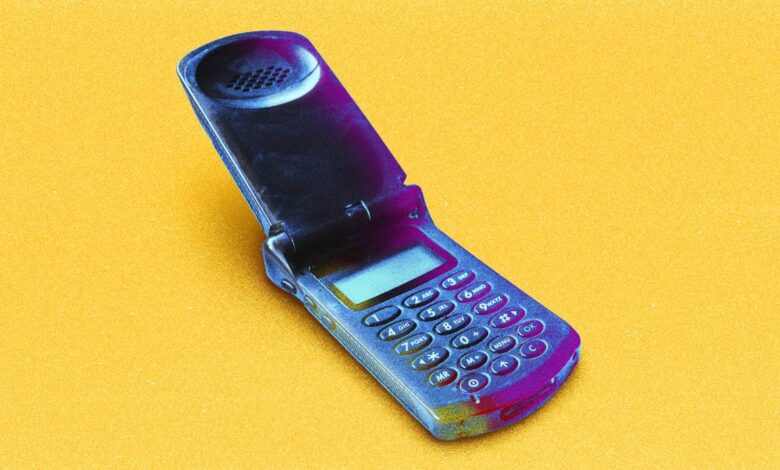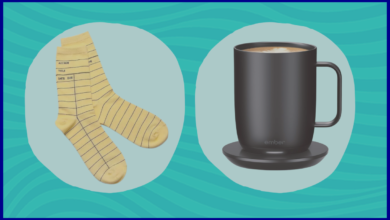Can Low-Tech ‘Dumb Phones’ Provide Relief for the Overstimulated Users Seeking a Break from Apps and the Internet?

In Pursuit of Simplicity: Embracing the "Dumb Phone" Revolution
In an era drenched in digital noise and pixelated distractions, Sara Kuburic—a psychotherapist who’s carved a niche as “the Millennial Therapist” for her 1.7 million Instagram acolytes—decided it was time for a radical reboot. Last fall, with an air of nostalgia and a hint of rebellion against the incessant connectivity, she opted for an “old-school” flip phone, shunning her smartphone for weekends and after work hours. This vintage gadget, often derisively dubbed a “dumb phone,” wielded no apps, no internet, just the pure simplicity of calls and texts—ideal for detoxing from the whirlwind of modern life.
"Overstimulation suffocated me; I felt tethered to my devices, perpetually obligated to engage," Kuburic reveals in an interview, reflecting on the upside-down world of relentless notifications. It’s a sentiment echoed in her book, It’s On Me: Accepting Hard Truths, Discover Your Self, and Change Your Life, as she confides in Yahoo Life about her quest for tranquility in a digitally disoriented existence. "It turned into an automatic reflex—grabbing my phone, scrolling, replying to emails. Between work demands and the relentless curiosity of Googling mindless trivia at ungodly hours, I knew I had to reclaim my time."
Her rationale? A formidable list: blurred boundaries between work and personal life, mounting stress, fragmented presence in daily interactions, wastelands of lost time, and a gnawing sense of disconnection.
The Allure of the Dumb Phone
Kuburic’s predicament resonates with psychologist Thijs Launspach, who coins the term “techno stress.” Launspach, author of Crazy Busy: Keeping Sane in a Stressful World, argues that our devices—those sleek portals to infinite information—bear an unintended weight. "The surges of dopamine from likes, notifications, or celebrity posts keep us hooked," he explains. "These gadgets are meticulously engineered to ensnare our attention, amplifying stress alongside our everyday lives."
Enter the dumb phone, the forgotten relic of pre-smartphone times, now emerging as a beacon of hope for many who crave a more measured existence. These minimalist devices have garnered admiration from a spectrum of users, including parents keen on providing their children with a means of contact devoid of digital entrapments. In ultra-Orthodox communities, "kosher phones" have gained traction—devices that preclude browsing the web, emphasizing connectivity over distraction. As one retailer succinctly puts it, “Utilize advanced technology free from the sirens of social media.”
Amidst this revival, flip phones have ignited newfound enthusiasm among Generation Z—an age group rife with Y2K nostalgia—who find solace in stepping back from the digital abyss. Launspach notes a budding trend among young adults seeking reprieve from the stresses imposed by their smartphones.
Navigating the Transition
Since adopting her flip phone, Kuburic has experienced mixed results. While she relishes the simplicity, logistical hurdles abound. "In theory, it sounds delightful, but the commitment proves tricky, especially when I travel and rely on navigation apps," she states, describing scenarios where the device was left behind.
The painstaking process of texting becomes a bottleneck too, often resulting in silent exchanges. Yet therein lies a paradox; she’s fortified her commitment to planning ahead, fostering deeper connections during interactions. "Being present—truly present—has transformed my relationships," she muses, recognizing that her attention has shifted from ephemeral online interactions to genuine moments with friends and family.
Post-announcement, a wave of solidarity surged through her audience, as others echoed her sentiments. Some expressed the initial discomfort of confronting their thoughts in the absence of a screen, while many hailed the switch as life-changing, liberating them from compulsive behaviors.
Learning to surrender the illusion of control remains a pivotal lesson. “Staying plugged in afforded instant gratification—calls, emails, updates—but disconnecting felt like relinquishing power,” Kuburic reflects. However, she has also discovered a liberating truth: "The world doesn’t stop turning just because I’m offline."
Establishing Healthier Tech Norms
Despite the allure of minimalist devices, life in the 21st century rarely accommodates such stark choices. The perceived risks of losing connectivity loom large, along with the familiar specter of FOMO (fear of missing out). Yet perhaps this extraordinary retreat holds a sustainable secret for those wrestling with digital impulsivity.
Launspach likens this tech battle to dieting with temptations lurking nearby—the precarious balance of willpower amidst endless allure. "Avoiding temptation is easier when your vices aren’t within reach,” he states.
He suggests alternative strategies for those unwilling to fully ditch their smartphones: declutter your home screen of addictive apps, impose “do not disturb” modes during moments of reprieve, and lean on colleagues or friends for accountability.
Kuburic adheres to her tech boundaries with clarity: "My rules—no electronics in bed; no morning email checks; carve out time for self-care rituals before diving into daily chaos; and keep meals sacred, free from screens."
As the digital landscape continues to swirl around us, perhaps the steeping desire for simplicity and connection will usher in a renaissance of refreshing analog experiences—one text, one phone call at a time.
This article contains Amazon affiliate links; by clicking on them and proceeding with a purchase, we may earn a commission.




